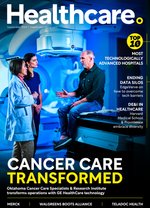The issue of intellectual property within Global Hosptials

Written Sarah Brooks
When it comes to health, one’s medical records are everything.
According to Health.com, surgery mix-ups are more common than we're believed to think. Over a 6.5 year period, Colorado doctors operated on the wrong part of a patients' body more than 100 times, and on the wrong patient in general more than 25 times.
The same study found that approximately one-third of the patient mix-ups had long-term effects on the patient.
In addition to patient mix-ups, identity theft is a problem amongst hospitals, as well.
A recent Ponemon Institute study found that approximately 1.5 million Americans have been a victim of medical identity theft.
Hospital workers are sometimes the culprits - selling personal information of the patients - and sometimes the general population is the culprits - stealing someone's identity specifically to obtain health care and health care benefits.
In order to prevent these crimes, security has to be tightened and medical records must be better protected.
What can hospitals do?
Ponemon Institutealso found that $6 billion is spent annually on breaches of patient information. Worse yet, the study found that protecting patient records is not a top priority of many hospitals. The areas that are most susceptible to theft include billing and private medical records.
Hospitals can choose data organizational programs that put safety and protection high on the priority list.
Syncsort, for example, is a way to integrate big data, smarter (as the slogan says). Big data is defined as a large, complex collection of multiple data sets that must be stored, shared and of course, protected. A great way for hospitals to tighten security among patient data records is by choosing companies such as Syncsort or Pivotal.
Hospitals can also make sure all of their data on hard drives is encrypted, or converted into a code. This protects the patients personal medical records if a computer or laptop were to go missing.
To help prevent patient mix-ups, the Joint Commission developed a technique where surgeons and the entire surgical team take a pre-surgery "time out."
During this break, the patient is double-checked, along with the site where the operation will take place. Human error is the main reason for patient mix-ups, not necessarily errors within the medical records system.
Keep in mind that a significant amount of errors happen long before the patient is prepped for surgery. There may have been a mix-up in test results, lab results or diagnostic procedures.
In addition to improving medical databases and protecting private patient information, double-checking everything from blood samples and MRI scans to the patients' correct name and reason for being in the hospital is crucial.
With Obamacare being enacted, most hospitals will eventually switch to electronic health records.
Hospital responsibilities are increasing - they're narrowing in on providing better care for patients, minimizing costs and improving the health of people overall.
Let's just hope millions of private records are protected from identity theft, patient mix-ups and more.
About the Author: Sarah Brooks is a freelance writer living in Glendale, AZ. She writes on health, personal finance and small businesses.

